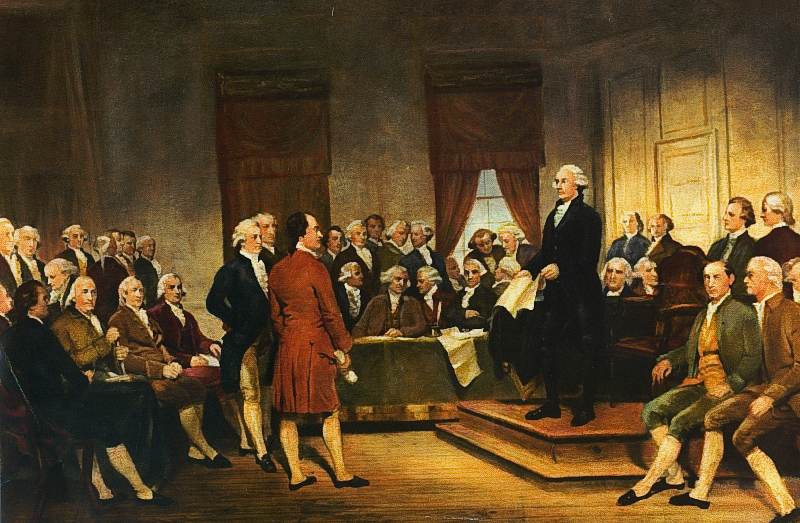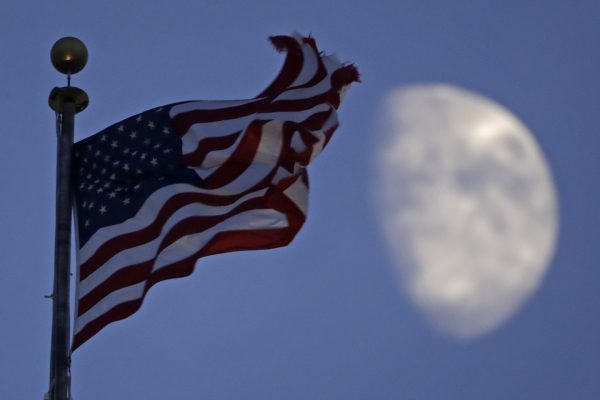Why We Should Revere the Founders

Love of country demands love of its history.
The Fourth of July ought to be an occasion for, among other things, reflecting on and giving expression to our reverence for the American Founders. This is not as common as it once was; reverence for the Founders has gone out of style. Nevertheless, it’s both eminently reasonable in itself and necessary for the nation’s political health.
It is reasonable to look up to benefactors, to those who have provided us with some important good that we could not have attained on our own. The Founders of our nation certainly deserve to be so considered in such a light. What they accomplished benefits us—all of us, even those among us who are not especially privileged. Even the less fortunate among us are enjoying prosperity, public order, and freedom that most human beings would envy.
The poor may be disadvantaged in relation to most of their fellow citizens. But they, like all Americans, are remarkably advantaged in relation to the human race as a whole—and especially in comparison to the human race throughout all of history, during most of which most people were afflicted by material hardship and the arbitrary power of rulers. As Americans of the twenty-first century, we did nothing to earn the political and economic benefits to which we were born. We inherited them along with the country that was built by the people who came before us. Gratitude is the appropriate response.
This gratitude, moreover, is necessarily a form of “looking up” to the Founders, who provided us with benefits by their exertions, and we have received those benefits. They have passed from the scene, so there is nothing we can do to repay them except to live lives that they would regard as worthy and protect and pass on their political legacy.
One might object that the Founders were only trying to take care of themselves, and that gratitude is only due to those who have helped us and who intended to do so. The latter claim is of course correct. We don’t feel gratitude to somebody whose deeds are beneficial to us accidentally. As Alexander Hamilton once observed, gratitude presupposes that the benefactor was animated by benevolence, by a desire to do good to us.
The Founders, however, certainly are benefactors in this full sense. They understood themselves as laboring to erect a system of liberty that they could bequeath to future generations. Evidence of their concern for “posterity” is to be found not only in the Preamble of the Constitution. That concern is a recurring theme of their writings throughout the revolutionary and founding periods.
Of course, gratitude is not the same thing as reverence. You can feel grateful to somebody who does you a good turn, even if you think the person is not above you in any other way. Reverence for the Founders, then, is justified not just on the grounds that they did good for us, for which we should be grateful. It is based on the fact that what they achieved was both good and very difficult.
Not just anybody could succeed in doing what the Founders did. They had to fight a war for eight years on their own soil. They had to design and put into operation a new form of government. These accomplishments required not only an admirable doggedness and willingness to suffer, but also wisdom and prudence of the highest order. Do we possess those virtues to the same degree? Could we achieve the things the Founders achieved? These questions demand that we recognize the Founders as a generation of superior virtue to our own.
Today, however, some Americans seem to think that it is impossible to revere the Founders because America’s Founding was blighted by the injustice of slavery. Some among the most ardent of the “woke” go even further and seem actively to disdain the Founders because of this defect in the country’s origins.
It goes without saying that nobody reveres the Founders because of slavery but despite it. Moreover, as evil as the institution of slavery was, it does not follow that the Founders deserve to be blamed for it. They were born into a society in which it already existed. And they were clear in their condemnations of it and their hope that it would be eradicated. One can therefore deplore the evil of slavery with the Founders, without depriving them of the gratitude and honor they deserve for establishing the country that has been such a blessing to us.
If we think our country is better without slavery—as of course it is—then we should not be dwelling complacently on our own superiority. We should instead be feeling gratitude and reverence for the earlier generation of Americans who did the difficult and costly work of making the elimination of slavery possible. But those Americans—men like Abraham Lincoln—revered the Founders and understood themselves as completing and perfecting the good work that had been begun by the Founders.
Reverence for the Founders, then, is not sentimentality or jingoism. It is the reasonable fruit of a mature moral sensibility. It is, moreover, politically necessary. A nation that does not love its own history does not love itself, and is doomed. It is nothing but a collection of people with no reason to care about each other and no reason to perpetuate the institutions and principles that have made possible all the benefits they have enjoyed without earning or deserving them.
This Independence Day, let’s return to a proper reverence for the Founders. It is the right thing to do, and the country’s future depends on it.
The American Mind presents a range of perspectives. Views are writers’ own and do not necessarily represent those of The Claremont Institute.
The American Mind is a publication of the Claremont Institute, a non-profit 501(c)(3) organization, dedicated to restoring the principles of the American Founding to their rightful, preeminent authority in our national life. Interested in supporting our work? Gifts to the Claremont Institute are tax-deductible.
This side of heaven, there is only one remedy for tribalism.
Recovering the world-changing triumph of America.



